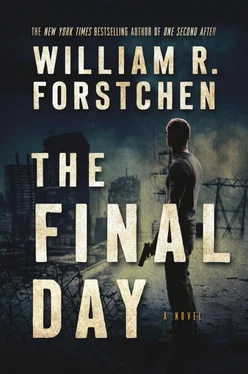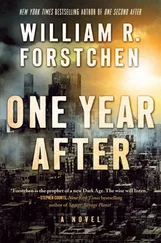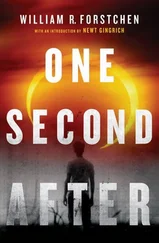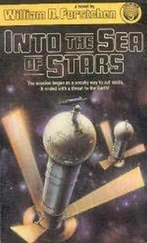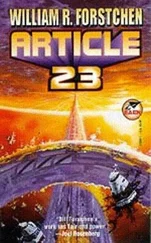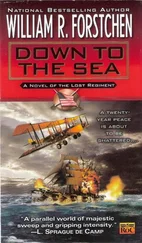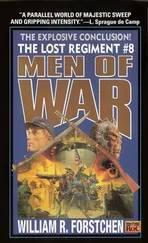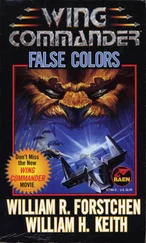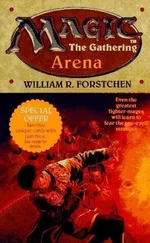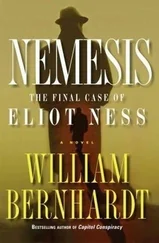“Air?”
“Assume so.”
“Our choppers?”
“I’ve already ordered them to clear out. They get caught on the ground, we truly are screwed. They’re pulling back to where we landed earlier today. We can stay in touch with the comm team I left up on Little Round Top. That way no transmissions can be locked in on. Our choppers lifted off a few minutes ago. Security teams at the gate are pulling in and securing that huge steel door. Wounded are inside the gate and being tended to.”
John nodded, crushed out his cigarette, and lit another. Bob, coughing, just let his drop and did not bother to try another just yet.
“We caught them by surprise,” John replied. “If they hit back, we’ll be ready and can hold this place against a damn armored brigade. Are there any back doors?”
“I’ve got some of my people talking to the prisoners we took. Hate to say so, but I told my people to be persuasive if need be.”
“What doesn’t happen in front of CNN never happened,” John said softly. It was a bit of advice John remembered being spread among the troops just before going into Iraq. Of course there were rules of engagement with his army. But there was also the fundamental fact that war ultimately was and is the application of brutality, and if it saved the lives of men under one’s command, all bets were off, at least if CNN wasn’t there.
Bob did not reply.
“So what next, sir?” John asked.
Bob pulled another cigarette out of the pack lying on the table and lit it. His feet still up on the table, he exhaled the first puff and watched in silence as the smoke swirled up. “John, at a moment like this, it might seem strange, but I’m going philosophical on you. In fact, you were one of the few I ever served with I could go philosophical with.”
John said nothing, but it was indeed an ultimate compliment.
“Do you remember our oath when we were sworn into the service?”
“Yes, sir.”
Bob continued to stare at the coils of smoke. “‘I do solemnly swear that I will support and defend the Constitution of the United States against all enemies, foreign and domestic,’ there’s a bit more, and then it ends with ‘I will well and faithfully discharge the duties of the office on which I am about to enter. So help me God.’”
John remained silent.
“I have just been ordered by the person claiming to be the president of the United States, headquartered in Bluemont, to surrender my command and all those serving with me.” He took another drag on his cigarette, gaze unfocused. “You ever take an order from someone you thought was a total ass and the order was dead wrong?”
“Yes, sir.”
“I hope not me.”
John chuckled softly. “Of course not.”
“For enlisted personnel, their oath includes that they are only required to obey orders that are lawful and are held morally and even legally accountable if the order is immoral or violates the military code of justice and/or the Constitution. That became important post-Vietnam, after the Mỹ Lai Massacre.
“That is not specified in the oath for an officer, but it is clearly implied because we have an option enlisted personnel do not have; we can resign our commissions in protest and are expected to do so.” Another puff on the cigarette followed by a moment of silent thought.
“Are you going to resign?” John finally asked.
Bob looked over at him. “Your thoughts, John?”
“Is it about here?” John asked. “The fact that someone—in fact, quite a few—knew on the morning of the Day that we were going to get hit, took care of their own, and said the hell with the rest of us?”
“In part.”
Bob was silent for a moment. He took another drag on his cigarette and sighed.
“So damn much is clear now. We knew a practice drill was going on the day we got hit and most of the personnel that took over after that day by chance had been in Bluemont. At least I and others believed it was by chance. Hell, drills like that are being pulled all the time. We just came to assume that a few more that took over made it to Bluemont in the weeks afterward.”
He stood and looked out the window of the room to the open floor of what had been built in the 1950s to serve as the War Room to keep on fighting from if Washington was destroyed. “This was built to fight a nuclear war from. Once ICBMs with flight times of but minutes came online in the late 1950s and warning time went from hours down to just a few minutes, those of us working in the Pentagon knew we’d all be gone in those first few minutes and this place was all but forgotten. A relic of a different type of war from a different time. And now to find it was activated and running with families stashed here?”
He looked back at John, tears in his eyes. “Six hours’ warning and I could have gotten Linda out of Florida. All of us could have done something. For that matter, we could have scrambled everything we had and perhaps even targeted the container ships in the Gulf of Mexico and off the California coast before they hit us. It’s all too much to absorb, John.”
“I spoke to a woman who said her husband claimed that a select few knew something was coming but assumed it would be just a nuclear strike on D.C., and I would guess maybe New York.” John wearily shook his head. “ Just D.C. and New York,” John whispered again. “Just ten to fifteen million dead. My God, what kind of mentality thinks such a loss would be a small number and that would reset the political paradigm in their favor.”
“There’s intelligence chatter all the time.” Bob sighed. “If one believes all of it, every day you go crazy. You know that. Maybe they thought that it was just a mid-level alert. I guess we’ll never know for sure. Bastards who would sit back for that think of themselves first. I doubt if we’ll ever get the truth from them.”
“By the way,” John said, breaking the tension of the moment with a sad smile, “it was her husband sending those love notes, not to his wife but to his mistress stashed away in the highly secured other end of this facility, that gave us the clue about Site R. I told her you have the letters. She is so pissed off I’m certain she’ll sing like a canary for us if we need more info later.”
“Typical,” Bob said softly, wearily shaking his head. “So typical of so many moral scum we all had to salute at one time or another.”
“But to the core question, sir?” John asked. “Is it about what they did to us all or what they are going to do to us next?”
“Go on.”
“I see one side of the dilemma that you are dwelling on being what happened. But, sir, the more pressing issue is what they’re going to do next and how you will reply.”
“Keep talking.” Now Bob lit his third cigarette.
“All of this started to unravel when you received orders—when was it, not much more than a day ago?—to pull your entire command back to Roanoke. It meant that Bluemont was preparing to pop an EMP to destabilize Atlanta, take out communities like mine that are resisting them, and I guess send a message to China as well not to push beyond the Mississippi. It comes down to the fact that they are willing to hold and execute power whatever the cost. I just heard someone quote Milton: ‘Better to reign in hell than serve in heaven.’ They scrambled to protect themselves when all hell cut loose and then seized the reins of power afterward. Whether that was their plot beforehand or not we most likely will never know. But since the Day? What they’ve done, what they are planning to do next? That, sir, is the issue of the moment to focus upon.”
Bob closed his eyes. “‘By the rivers of Babylon, there we sat down, yea, we wept when we remembered Zion… If I forget thee, O Jerusalem, let my right hand forget her cunning… If I do not remember thee, let my tongue cleave to the roof of my mouth…’”
Читать дальше
